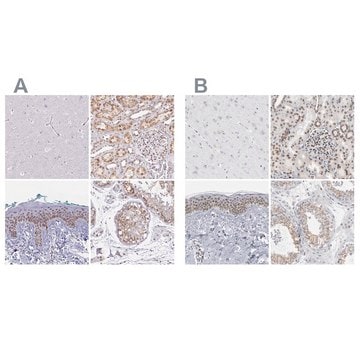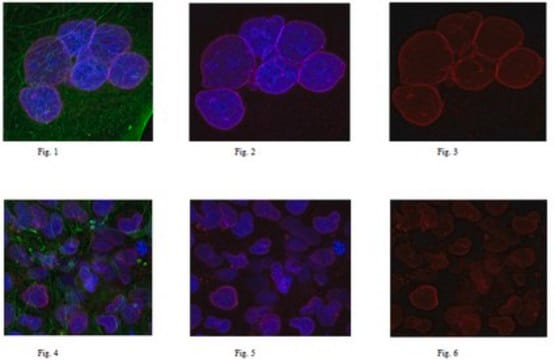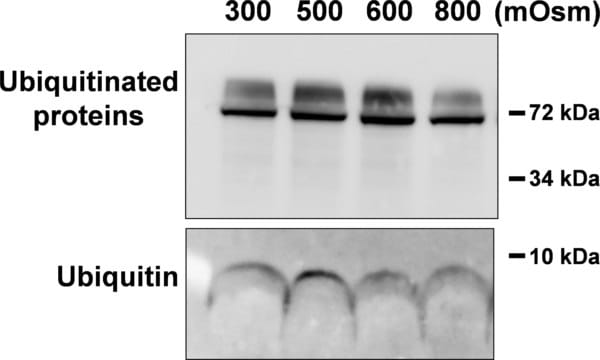ABN2288
Anti-Nesprin-2/SYNE2
Synonyme(s) :
KASH domain-containing protein 2, KASH2, Nuclear envelope spectrin repeat protein 2, Nucleus and actin connecting element protein, Protein NUANCE, Synaptic nuclear envelope protein 2, Syne-2
About This Item
Produits recommandés
Source biologique
rabbit
Niveau de qualité
Forme d'anticorps
purified antibody
Type de produit anticorps
primary antibodies
Clone
N/A, polyclonal
Poids mol.
calculated mol wt 782.75 kDa
observed mol wt ~135 kDa
Espèces réactives
mouse
Réactivité de l'espèce (prédite par homologie)
canine
Conditionnement
antibody small pack of 100 μL
Technique(s)
immunocytochemistry: suitable
western blot: suitable
Isotype
IgG
Séquence de l'épitope
N-terminal
Numéro d'accès Protein ID
Numéro d'accès UniProt
Température de stockage
-10 to -25°C
Informations sur le gène
mouse ... Syne2(319565)
Description générale
Spécificité
Immunogène
Application
Evaluated by Immunocytochemistry in NIH3T3 cells.
Immunocytochemistry Analysis: A 1:1,000 dilution of this antibody detected Nesprin-2/SYNE2 in NIH3T3 cells.
Tested applications
Western Blotting Analysis: A representative lot detected Nesprin-2/SYNE2 in Western Blotting application (Luxton, G.W., et. al. (2010). Science. 329(5994); 956-9).
Western Blotting Analysis: A 1:1,000 dilution from a representative lot detected Nesprin-2/SYNE2 in NIH-3T3 overexpressing Nesprin-2.
Immunocytochemistry Analysis: A representative lot detected Nesprin-2/SYNE2 in immunocytochemistry application (Zhang, Q., et. al. (2019). Curr Biol. 29(17); 2826-2839).
Note: Actual optimal working dilutions must be determined by end user as specimens, and experimental conditions may vary with the end user.
Forme physique
Stockage et stabilité
Autres remarques
Clause de non-responsabilité
Vous ne trouvez pas le bon produit ?
Essayez notre Outil de sélection de produits.
Code de la classe de stockage
11 - Combustible Solids
Classe de danger pour l'eau (WGK)
WGK 1
Point d'éclair (°F)
Not applicable
Point d'éclair (°C)
Not applicable
Certificats d'analyse (COA)
Recherchez un Certificats d'analyse (COA) en saisissant le numéro de lot du produit. Les numéros de lot figurent sur l'étiquette du produit après les mots "Lot" ou "Batch".
Déjà en possession de ce produit ?
Retrouvez la documentation relative aux produits que vous avez récemment achetés dans la Bibliothèque de documents.
Notre équipe de scientifiques dispose d'une expérience dans tous les secteurs de la recherche, notamment en sciences de la vie, science des matériaux, synthèse chimique, chromatographie, analyse et dans de nombreux autres domaines..
Contacter notre Service technique








